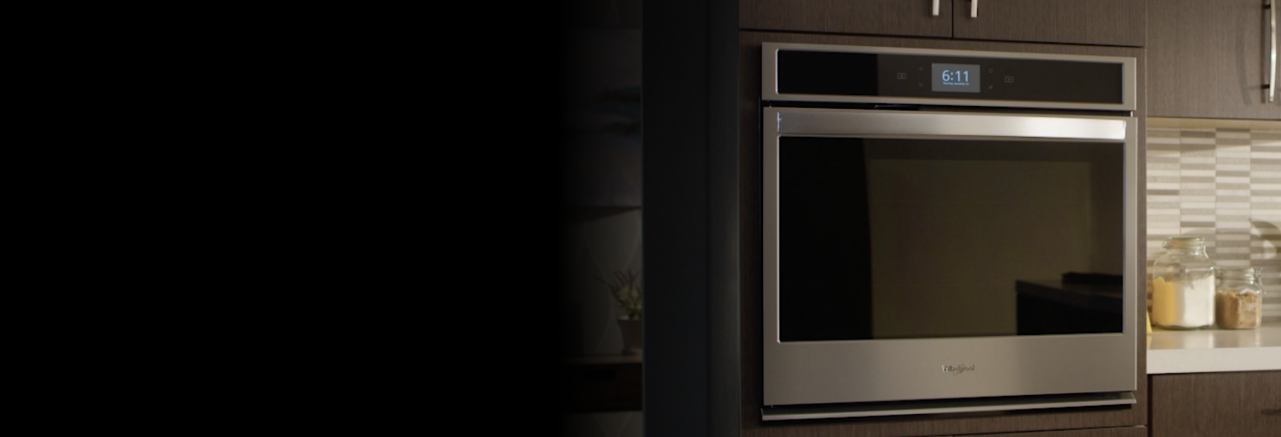What is a Self-Cleaning Oven?
A self-cleaning oven is an oven that is capable of using high temperatures to burn away deposits, grease, or grime left from cooking.
How to Use a Self-Cleaning Oven Safely
Wondering what it means to have a self-cleaning oven? Read on to learn how running a self-cleaning cycle can turn all of the food and grease buildups on your oven’s interior into a powder that you can wipe away. Follow these steps:
Step 1: How to use a self-cleaning oven
Step 2: Lock down and heat up
Step 3: Run self-clean cycle
Step 4: Wipe away the mess

Step 1: How to use a self-cleaning oven
First, remove everything (including racks) from your oven. On ranges, make sure there's nothing on the cooktop or in the storage drawer. Wipe the interior and frame with a damp cloth, avoiding the gasket so it will seal properly. Then, select a cleaning setting, following recommendations from your self-cleaning oven instructions. Whirlpool® self-cleaning ovens have settings for light, moderate or heavy soil.
Cleaning tip: To self-clean less often, clean up baking spills right after they happen. Dilute a little mild hand-wash dish detergent, baking soda or lemon juice in water. Use a clean cloth to scrub your oven with one of these cleaning solutions.
Model shown: WOS31ES0JS

Step 2: Lock down and heat up
Next, your oven locks and heats to a very high temperature. While self-cleaning ovens have extra insulation to help handle heat, it’s important to keep children away. No one should touch the oven while it cleans. Failure to follow these instructions can result in burns.

Electrical Shock Hazard
• Disconnect power before servicing.
• Replace all parts and pannels before operating.
• Failure to do so can result in death or electrical shock.
Step 3: Run self-clean cycle
High heat reduces stuck-on food and grease to ash in a process called pyrolytic cleaning. Your oven will stay locked and a fan will run until it cools. A cycle on a Whirlpool® range can take anywhere from 2.5–4.5 hours, while a wall oven can take 4-6 hours.
- Self-cleaning safety tips:
- Always move pets, especially birds, to another closed and ventilated room or outside in a cage until cleaning finishes.
- Turn on your hood fan and open windows to make sure that your kitchen is well-ventilated during the self-cleaning cycle to help get rid of heat, odors and smoke.
- Never use commercial oven cleaners or oven liner protective coating, as these can harm your oven’s interior.

Step 4: Wipe away the mess
A special enamel coating makes it easy to wipe away the ash at the end of the cycle with just a damp cloth. This can provide a helpful alternative to manual cleaning.
Find the right self-cleaning oven for your family
Interested in an oven that helps make clean-up easier? Shop Whirlpool® self-cleaning ranges and self-cleaning ovens.
Learn more about using oven features

Convection oven vs. regular oven
What, exactly, is a convection oven? Learn more to determine if you should stick with convention – or cook with convection.

What is Sabbath mode on a stove?
During Sabbath and religious holidays in Judaism, there may be restrictions on certain activities that can extend to the use of appliances.

Whirlpool® smart ovens
The Smart Slide-in Range lets you cut down on routine steps to get food to the table fast. Learn how you can rush a little less and do a little more.
Appliance IQ
Want more answers to your kitchen and laundry questions?


